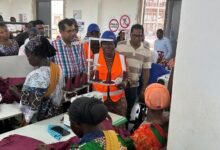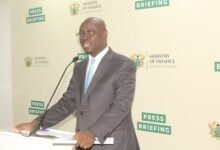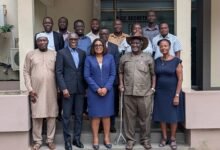Engage stakeholders on NPO Bill – Dr Jonah

A Senior Research Fellow, Institute for Democratic Governance (IDEG), Kwesi Jonah, has charged the Non-Profit Organisation (NPO) Secretariat to constantly engage relevant stakeholders on the NPO Bill.
The bill seeks to amend the current (NPO) Act 71, 1997 which was meant to create an enabling environment in which NPOs could be formed and function effectively.
Speaking at a policy dialogue organised by the Institute on Tuesday in Accra, Dr Jonah said the constant engagement would alleviate the fear some relevant stakeholders had concerning the bill which they indicated could limit their ability to effectively advocate social and economic transformation.
He said IDEG was implementing a project titled ‘Safeguarding NPOs in Ghana against financing from terrorists,’ to help raise awareness of NPOs on Anti-Money Laundering /Counter Terrorism Financing risks facing the sector.
The project, he noted, was also to promote an interface between high-level policy makers and NPOs against restrictive policy and legislative measures on the industry by the government.
He said the overall objective of the baseline study would capture and document the implementation of the Financial Action Task Force (FATF) recommendation eight by the government and its impact on NPOs.
The Head of NPO Secretariat, Dela Ashiabor, said the government fully acknowledged and recognised the key roles that NPOs played in service delivery, especially to the vulnerable and the excluded as well as improving accountability of public institutions.
He said the bill arose from both the government and stakeholder’s realisation that without a coherent and comprehensive overall framework for guiding the operations of different actors in the sector involved in issues that affect national development, the desired effect of the interventions would not be achieved by the interested parties.
“The exponential proliferation of Non-Profit Organisations in the country without a well-coordinated policy and regulation framework creates the opportunity for unprofessional practices and vulnerability of NPOs for abuse,” he stated.
Mr Ashiabor observed that after an assessment was conducted by the secretariat, it found out that “a lot of faith-based and humanitarian organisations are the ones that did not have a governance or financial structure and so they are the ones the criminals want to exploit.”
He said in order to encourage NPOs to join the financial system legally, the secretariat had been assisting them to create their own accounts and establish their board of directors as part of the requirements for the registration process.
Ms Shireen Ofosu, Manager, Financial Intelligent Centre, stated that in the absence of a national coordination framework, the operations of NPOs were faced with duplications, inefficiencies in the design and implementation of interventions at the national and local (Metropolitan Municipal District Assemblies) levels.
She said there was no national policy to guide the NPOs to enhance their collaboration, efficiency and effectiveness in services delivery.
BY BENEDICTA GYIMAAH FOLLEY





